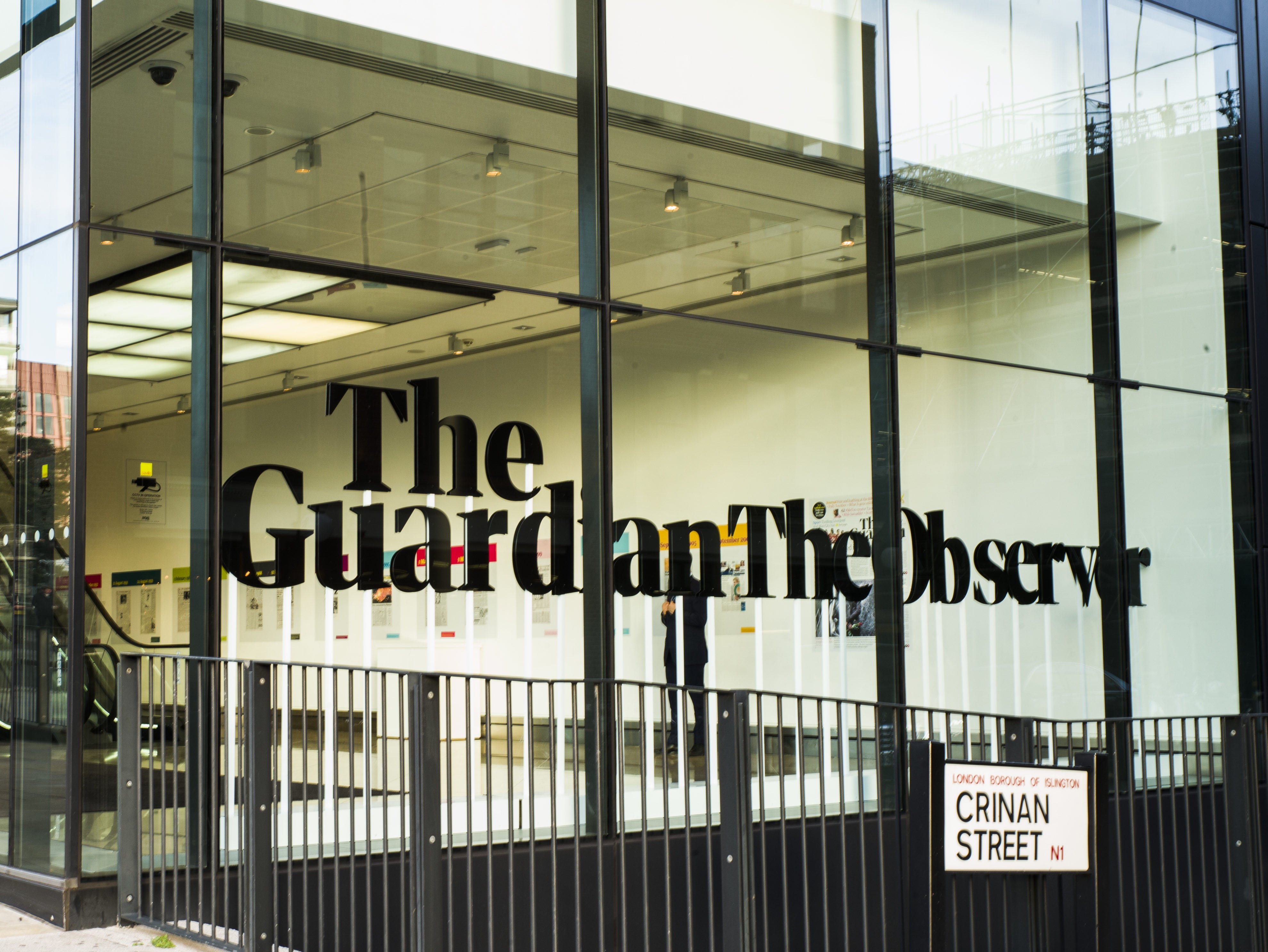
The Guardian and Observer have reported their first cash surplus in a generation and biggest revenue since 2008.
Parent company Guardian Media Group (GMG) made revenue of £255.8m in the year to 3 April 2022, growth of 13% on the previous year. It is the highest revenue total for GMG since 2010 and the highest for the core national news business since 2008.
The publisher said the increase was primarily down to digital reader revenues, which grew by 10% to £76.1m, and advertising.
Revenues from outside the UK grew by 15.3% year-on-year to £79.9m. More than half (55%) of all digital reader revenue now comes from outside the UK.
GMG said the growth had proven its membership model of asking readers to contribute financially, which started six years ago, was “both innovative and highly successful”.
The Guardian passed the landmark of one million recurring digital supporters in November and said it had a further 500,000 one-off financial contributions in the financial year.
The Guardian’s endowment fund, amassed from the sale of its share in Trader Media Group and other investments, grew to a record level of £1.284bn (up from £1.148.5bn a year ago).
The Guardian does not need to make a profit. The remit of its owner the Scott Trust is to protect the journalism of The Guardian in perpetuity.
This year’s financial surplus, and increasing endowment fund, means it is now well placed to invest after a period of cost cuts.
GMG said the revenue growth, alongside "careful cost management", meant it ended the year with a positive cash flow of £6.7 million - a £22.3 million improvement on 2021. It said it was its first cash surplus in "many years" and that strong cash flow is the "primary target... in terms of financial sustainability".
"This strong cash performance provides a sustainable platform for long term strategic investment," it said in its financial statement.
Interim chief executive Keith Underwood said: “Strong revenue growth and our best cash performance in decades have firmly established a sustainable platform from which we can make strategic investments to grow the Guardian’s global reach, impact and revenue.
“Economic and market conditions will be challenging in the year ahead. However, with outstanding journalism, a trusted brand, and the financial resources to invest, we are well placed to continue our growth strategy.”
Pre-tax profits fell by 28% but adjusted operating profit rose by 277% to £11.7m and GMG management prefer this measure as the most accurate reflection of "the underlying operating performance of the business".
A directors’ remuneration report also published today showed Guardian editor-in-chief Katharine Viner's salary was increased to £495,000 per year from 1 January, up from £357,000 (with a 20% reduction between 1 May and 31 December 2020 due to the Covid-19 pandemic).
For the next financial year her base salary has been further increased by 3% to £509,850 effective from 1 April 2022.
Viner's predecessor Alan Rusbridger had a base salary of £395,000 at the end of his time as editor in 2015.
On 1 April Underwood also received a 3% base salary increase to £443,415. His predecessor Annette Thomas, who left the company on 30 June last year amid reports of an internal power battle with Viner, had a base salary of £630,000 and received a £795,396 payment to cover her 12-month notice period.
The report also showed staff on lower pay had been given a higher level of pay increase than staff earning more in the annual salary review this year, in response to the cost of living crisis and high inflation.
In July 2020, Guardian Media Group announced 180 jobs were being cut because of the feared financial impact of the coronavirus pandemic.
Charts by Alexandra Taylor
Press Gazette is hosting the Future of Media Technology Conference. For more information, visit NSMG.live
Picture: Graeme Robertson
Email pged@pressgazette.co.uk to point out mistakes, provide story tips or send in a letter for publication on our "Letters Page" blog

